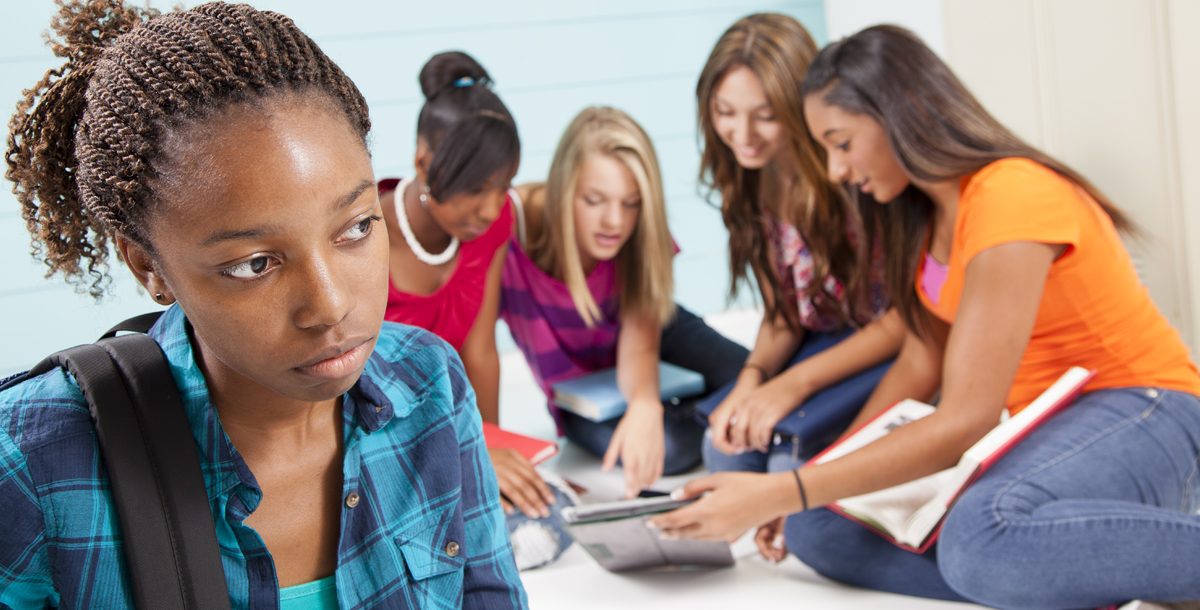Colleen Furey, Psy.D., is a licensed clinical psychologist and behavioral health consultant who practices at two Mercy Health pediatric offices. Check out her tips on talking about and handling peer pressure when it comes to your child.
When does peer pressure start?
It might seem hard to believe, but peer pressure can start early as pre-school.
“That’s when kids become aware of others,” says Dr. Furey. “Even at a young age, we see that some kids will exert social influence while others will be more likely to conform with their peers.”
This behavior is natural because when we are young, we learn by observing others.
“Kids’ brains soak up everything around them in an effort to learn how to act. They are likely to mimic what they see others do,” notes Dr. Furey. “Initially, parents and other important adults are the most influential sources for children. However, influence shifts to their peers as they approach adolescence.”
The negatives of peer pressure
The age when kids grow in independence and start to make more decisions for themselves coincides with the age when they start valuing the opinion of their peers. This means adolescence is also when kids become more prone to conforming to those around them.
As kids get older, you tend to see groups who dress similarly and enjoy the same music or social platforms. While this behavior is completely normal, it can become problematic if the social influence a child is exposed to is negative. This is especially true because kids tend to underestimate the risks associated with certain behaviors.
“There’s a reason we have the saying ‘birds of a feather flock together,’ and it’s not uncommon to find groups of teens who exhibit similar negative health-related behaviors,” says Dr. Furey. “These could include diet and exercise or risk-taking behaviors such as alcohol and drug use, truancy, and sexual activity.”
Boys tend to be more influenced by a group when it comes to risk-taking behavior, while girls are more likely to be influenced by one or two best friends.
How to talk to your child about peer pressure
Just because a child cares a lot about their peers doesn’t mean their parents are totally shut out. However, parents need to be strategic in their approach.
“When you’re discussing a tough topic like peer pressure with your kids, make sure the conversation is developmentally appropriate,” says Dr. Furey.
Whenever your child talks about their day or their peers, it gives you a great opportunity to have these conversations. Maintaining good relationships and open lines of communication with your children can help them navigate this period of life successfully.
“Research shows that having a strong parent-child relationship can help kids resist negative social influence,” says Dr. Furey. “Additionally, by modeling your own healthy relationships and demonstrating assertiveness, you as a parent are giving your child valuable lessons.”
If you child rejects what they perceive as a lecture, here are some tips to help you connect with them:
- Use examples of peer pressure from your childhood and discuss how it made you feel at the time.
- Give advice on how your child can help a peer who is experiencing peer pressure.
- For younger children, there are developmentally appropriate books and movies available to help them learn about peer pressure.
- For teenagers, there are shows and movies with themes of peer pressure, such as Mean Girls or the Breakfast Club, that can be useful. After watching one with your child, ask questions about how different situations played out and how characters could have handled things differently.
“Talking regularly with your kids will help you get comfortable with having difficult conversations, especially around safety issues, such as getting into a car with a drunk driver,” says Dr. Furey. “It’s important to stress that regardless of what their peers tell them, they are responsible for the consequences of their behavior.”
Dr. Furey also recommends getting to know your kids’ friends to see their influences first-hand. Also, it is helpful to become friendly with their parents as they are an extended group of people with tabs on your child. If you notice any significant or abrupt changes in your child’s social world, you can always reach out to your pediatrician for help.
“If there are additional concerns pointing to depression or victimization at school, your pediatrician will refer your family to a mental health professional for treatment,” notes Dr. Furey.
Most importantly, just remember that this stage of life doesn’t last forever, and it isn’t necessarily all bad.
“Peer pressure peaks in early adolescence and declines as kids become young adults with a developing sense of self,” says Furey. “While peer pressure has a bad rap, it can be useful and positive, too. Kids who are around influential kids making good choices tend to make good choices themselves.”
If you are looking for more positive peer influences for your child, you can set up your kids to volunteer with a group or an extracurricular class that exposes them to a different peer group.
Learn more about the mental health services offered at Mercy Health.






